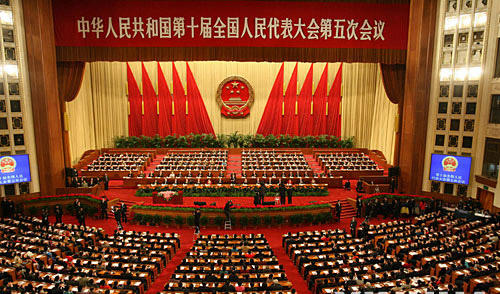Coca-Cola deal major test for China's new anti-monopoly law (2008-09-04 AFP Shanghai)
The fate of Coca-Cola's proposed takeover of China's Huiyuan Juice Group is now in the hands of Chinese regulators in the first high-profile test of Beijing's fledgling anti-monopoly law.
If approved by authorities, analysts say Coca-Cola's 2.4-billion-dollar purchase would be the largest takeover of a Chinese company by a foreign firm.
Coke officials are saying little about how long it will take for Beijing authorities to approve the deal or how difficult a process it could be.
The deal is the most significant since China's anti-monopoly law took effect last month. Huiyuan's shares closed 7.68 percent lower in Hong Kong Thursday at 10.10 Hong Kong dollars (1.29 US dollars), in part due to fears regulators might reject the deal.
The purchase of the Hong Kong-listed firm must be reviewed because the companies' combined global turnover was more than 10 billion yuan (1.5 billion US dollars) last year and each made more than 400 million yuan in China.
The move is part of Coke's global efforts to diversify beyond carbonated drinks amid expectations that Chinese demand for concentrated juices will increase with rising incomes and healthier lifestyles.
Together, the two companies would control 37 percent of China's juice drink market, according to a Merrill Lynch report.
"I can't see any grounds for rejecting this deal other than an allergy to having a big Chinese company taken over by a foreign one," said Arthur Kroeber, managing director of the Beijing-based economics research firm Dragonomics.
Nationalist opposition to the deal has already begun rearing its head. In a straw poll on the China.com web portal, a majority of respondents said they opposed the deal.
But anti-trust experts said there appeared to be little legal reason for barring the transaction.
"It doesn't raise national security issues, it's just juice," said Susan Finder, a Kong Kong anti-trust lawyer for the US firm Heller Ehrman. "Is Huiyuan a national treasure of a brand? I don't think so."
However, how long the approval process will take remains unclear.
The government has still only issued minimal guidelines since the law was introduced last month, and much about how the law will work in practice has not been clarified.
"Chinese regulators know these are tough issues so their approach is 'let's take time'," Finder said.
But Chinese officials have also in the past used playing for time as a way to stop deals without formally rejecting them.
In July, US private equity firm Carlyle Group abandoned an attempt to buy a stake in Chinese construction machinery maker Xugong Group after waiting three years for regulatory approval.
"One of the key concerns for foreign investors is you never know when you will get a formal acceptance from the authorities," said Cheng Yuan, a Beijing-based anti-trust lawyer at the firm Linklaters. "This has not been resolved."
If the deal receives initial approval but the Ministry of Commerce conducts a detailed "Phase Two" anti-trust review, legal expert will be watching closely how the competition analysis will be conducted.
Previously such reviews were informal, perhaps involving companies and industry associations, but if regulators issue a written anti-trust review of the Coke deal, it would be the first ever published by the government, Cheng said.
Coke's market position could depend very much on the fine print, according to observers.
"They could elect to impose certain conditions on it. They might say 'You could do it except for the apple juice, you need to sell that, or the pear drink you need to dispose of it'," said Thomas Jones, a Beijing-based partner for Allen and Overy.
Jones said his firm has already had one deal successfully approved under the new law for a merger outside of China that now required Chinese government approval because at least one of the companies has a strong presence here. He declined to name the company.
"I think that the process is working," Jones said.






